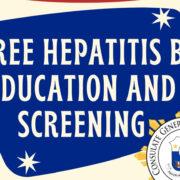Question: What are some documents that can be used to document the Arrival Requirement?
Answer: The documents that may be accepted by USCIS to satisfy this criterion includes, but is not limited to:
• Financial records
• Medical records
• School records
• Employment records
• Military records
What can be used to document the Residency Requirement?
Answer: Individuals must have continuously resided in US since June 15, 2007 to present (for five years). Certain points were indicated by Director Mayorkas:
• A brief casual and/or innocent trip outside of the US may not necessarily interrupt the continuously residency requirement, so long as the trip occurred before Aug 15, 2012.
• Any travel outside the US after August 15, 2012 will disqualify an individual.
• Individuals applying for Deferred Action of Childhood Arrivals who wish to travel outside the US must apply for an Advance Parole (Form I-131) and pay the application fee for an Advance Parole ($360) after the Deferred Action request has been first made to USCIS. Advance Parole applications should be not be filed concurrently with a request for Deferred Action. (Generally, USCIS will only grant an Advance Parole for travel for humanitarian, education, or employment reasons.)
• Individuals must be physically present in US on June 15, 2012 and at time a request for Deferred Action is made to USCIS.
What about the Education or Military Requirement?
Answer: The documents that may be accepted by USCIS to satisfy this criterion includes, but is not limited to:
• School diplomas
• GED certificates
• School transcripts
• Report cards
• Military documents such as report of separate forms, personnel or health records
What about the Criminal History Screening Requirement?
Answer: The detailed definitions of felony, significant misdemeanor, and misdemeanors.
A conviction of driving under the influence (DUI or DWI) is considered a significant misdemeanor regardless of the punishment imposed. Minor traffic offenses (including driving without a license) will not generally bar a grant of deferred action but a requestor’s entire criminal history will be reviewed. If the criminal offense is not considered a national security, fraud, or public safety risk, then it will not be referred to ICE.
Knowing misrepresentations will subject an individual to criminal and/or removal proceedings from the US
Question: What about The Use of Affidavits and Circumstantial Evidence?
Answer: Affidavits alone will not be sufficient to satisfy any of the criteria for a request for Deferred Action for Childhood Arrivals but they may be used to supporting evidence only if the documentary evidence is insufficient or lacking. Circumstantial evidence may be used in the following instances:
• Showing an individual was physically present in the US on June 15, 2012, came to US before their 16th birthday, and/or satisfied the five-year continuous residency requirement (so long as some evidence was available).
• Used to fill in gaps of length of residence in the US
• Used to show travel outside the US was brief, casual and innocent.
Question: What about Disclosure of Data to Other Government Agencies
Answer: Director Mayorkas indicated that information provided to USCIS on a request for Deferred Action is protected from disclosure to ICE and CBP for the purpose of immigration proceedings, unless the requester meets the criteria for a Notice to Appear (NTA).
If the Deferred Action request is granted, the individual will not be referred to ICE but the information may be shared with national security law enforcement agencies for purposes other than removal. The sharing of data may include data belonging to family members and guardians, in addition to data belonging to the individual applicant.
Question: What are the Filing Procedures?
Answer: Director Mayorkas indicated additional information will be released on August 15, 2012. In the meantime, here is information related to filing procedures:
1. The request for Deferred Action for Childhood Arrivals will require the use of a form dedicated to this process (currently under review with the Office of Management and Budget (OMB)).
2. The request can be filed concurrently with an application for Employment Authorization (Form I-765). In order to qualify for employment, individuals must “demonstrate economic necessity” for employment. Work authorization will be approved initially for two years and may be renewed but at an additional fee.
3. The total all inclusive fee (includes Form I-765 as well) is $465.
4. Fee waivers are not available but fee exemptions will be made on a discretionary basis if individuals can demonstrate certain criteria related to the U.S. Poverty Guidelines. Fee exemption requests will need to be made before an individual requests for Deferred Action but not before August 15, 2012. (DHS will release more data on this issue on August 15, 2012.)
5. Biometrics and a background check will be conducted after a request is submitted to USCIS.
6. Interviews of requesters will be made on a discretionary basis to address issues of potential fraud and for quality assurance purposes.
7. Adjudication length will be monitored on an ongoing basis.
8. Denials of Deferred Action requests are not subject to an appeal or motion to reopen or reconsider.
Individuals who are currently in removal proceedings with final removal order or voluntary departure order may submit a request on condition they satisfy all the eligibility requirements for Deferred Action for Childhood Arrivals. BIA reps or attorneys may also contact the Public Advocate’s Office for more instructions regarding these individuals.
Individuals who have a separate application pending with USCIS (e.g.: U Visa), may make a separate request for Deferred Action if the benefit sought through the initial application has not already been granted. If the benefit from the other application has already been granted, then a request Deferred Action should not be made.
* * *
Brian D. Lerner is an Immigration and Naturalization Attorney. He is a Certified Specialist in Immigration and Nationality Law as Certified by the State Bar of California, Board of Legal Specialization. Mr. Lerner is married to a Filipina and has been helping Filipinos immigrate to the United States for nearly 20 years. His firm represents clients in Deportation/Removal proceedings, does Waivers, Appeals, Naturalization, Adjustments, Criminal Relief, Citizenship, Consulate Processing, Work Permits, Investment Visas and all other areas of Immigration and Naturalization Law. You can go online to http://www.californiaimmigration.us/ and get a free consultation or call us at (562) 495-0554 for an in-person office consultation.




